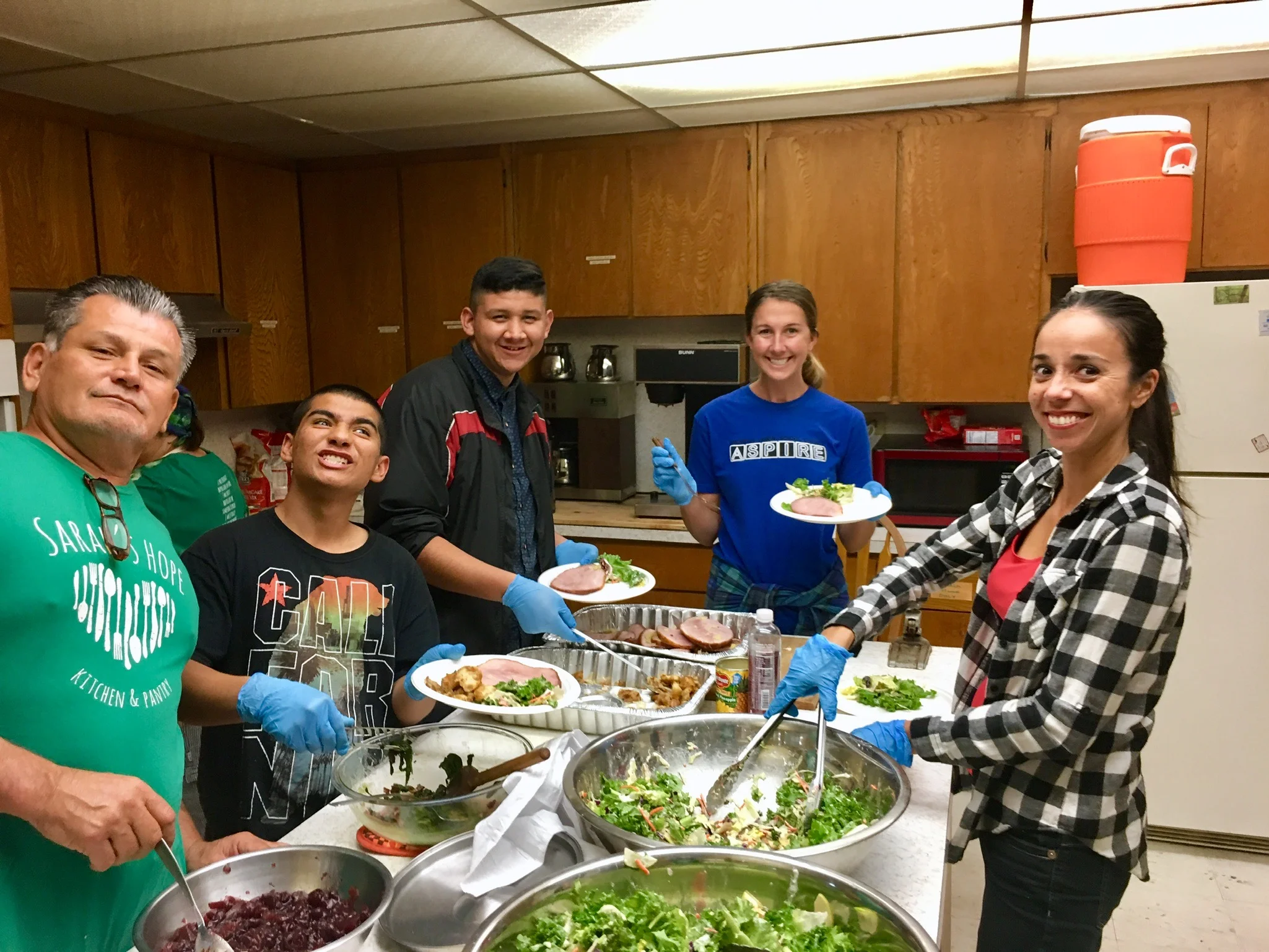“For just as the body is one and has many members, and all the members of the body, though many, are one body, so it is with Christ. For in the one Spirit we were all baptized into one body—Jews or Greeks, slaves or free—and we were all made to drink of one Spirit.”
- 1 Corinthians 12:12-13
Dear OSC friends and family,
Again I write to express our sincere hopes and prayers that you are staying sage and healthy at home during this difficult time.
So much has changed in such a short time! We are all getting more accustomed to connecting across our phones, our laptops, and even television screens. It’s so strange for me to speak into the little camera-eye on my iPad every Sunday morning, rather than look you in the eye from the sanctuary stage.
And yet, I am so grateful for the opportunities we have to connect! Seeing your faces during Zoom and FaceTime calls brings me real joy! Seeing your comments during our Facebook live services and your communion-at-home pictures of sourdough bread, goldfish crackers, and other creative eucharist elements reminds me that despite our relative distance, we are still one body in Christ.
Consider that idea: we are one body, joined together across time and space by the Spirit of God.
Earlier this month I wrote to encourage you that despite our relative isolation, we have all been given the grace to remain connected with God despite our circumstances, despite even our doubts. Today I want to push that idea forward and share another truth with you that has been resonating deeply with me during this COVID pandemic. That truth is this:
We are most deeply connected to God when we remain faithfully connected to each other in love.
In 1 Corinthians Chapter 12 we find the Apostle Paul employing one of his favorite metaphors: The church is the body of Christ. Paul loves this metaphor because of the way it encourages us to accept one another and love one another in spite of our differences.
This, by the way, is a particular problem for the followers of Christ living in ancient Corinth. Like all human communities, the Corinthian Christians has developed classes and hierarchies for categorizing one another, and these divisions were sowing frustration, judgement, and injustices in the community.
Paul’s solution is not to organize them into neatly segregated affinity groups (that’s typically what we do in The Modern American Church). Instead, he exhorts them to embrace a wildly diverse and interdependent community, likening our differences to the different “members” of the human body.
“If the whole body were an eye, where would the hearing be? If the whole body were hearing, where would the sense of smell be? 18 But as it is, God arranged the members in the body, each one of them, as he chose.”
- v17-18
Paul goes even further, flatly claiming that this extreme value for differences extends even to those individuals we would rather hide, or set-aside, or forget, saying:
“On the contrary, the members of the body that seem to be weaker are indispensable, 23 and those members of the body that we think less honorable we clothe with greater honor, and our less respectable members are treated with greater respect.”
- v22-23
Finally, Paul dramatically concludes this section with the proclamation that, because of this deep unity in Christ, we have the tremendous advantage of a deep solidarity in difficult times:
“If one member suffers, all suffer together with it; if one member is honored, all rejoice together with it.”
- v26
This should sound somewhat familiar, because last week I claimed that when we suffer, God suffers within us. Here Paul is extending that same theodicy from the experience of the individual-in-Christ to the experience of the community-in-Christ.
In other words, our union with God is magnified by our union with each other particularly when that union is based on mutual love, respect, and compassion in the midst of our quibbles, annoyances, and disagreements.
And so, yet again, we find that the strength of God is made present in the midst of our weakness.
During this time of fear and uncertainty, let us not deny our differences or avoid challenging or difficult relationships. Instead, let us embrace each other, encouraging each other, and support each other as best we can, leaning on the Spirit of God to strengthen us as we do.
___________________________________________________
Jason Coker is the Lead Pastor of the Oceanside Sanctuary.









